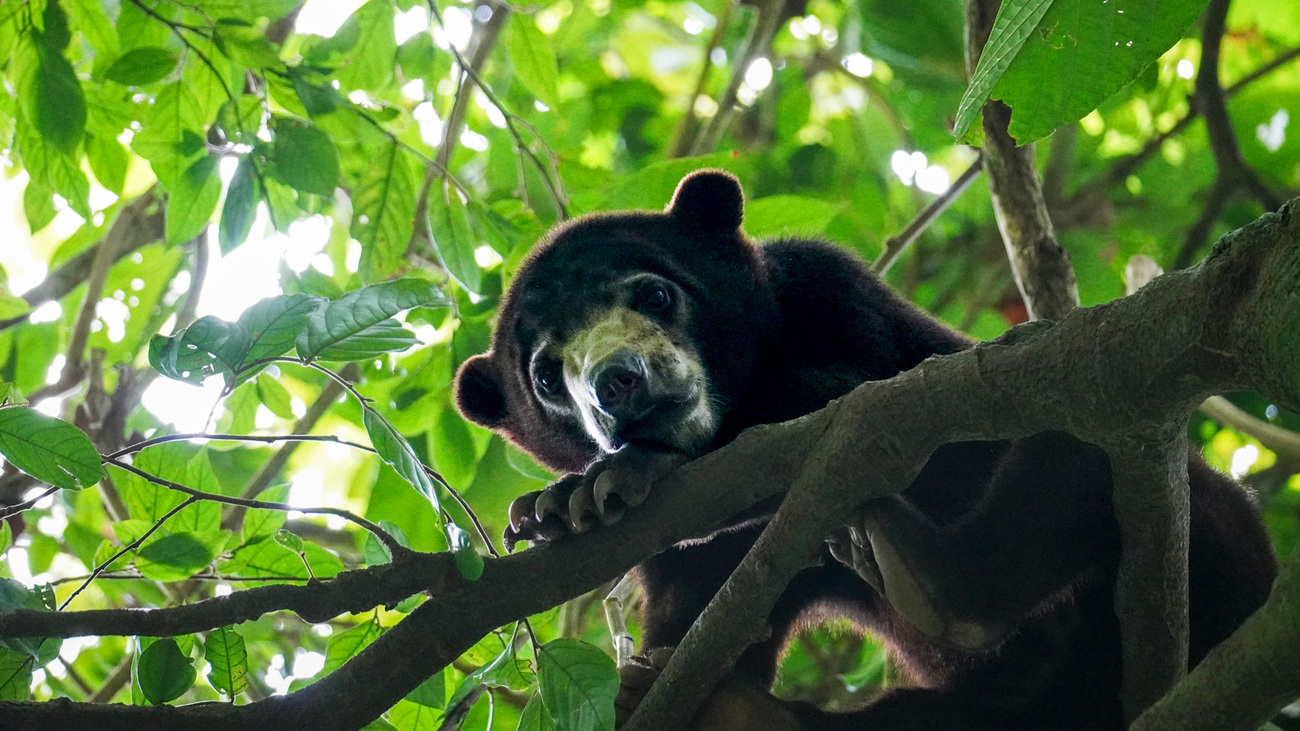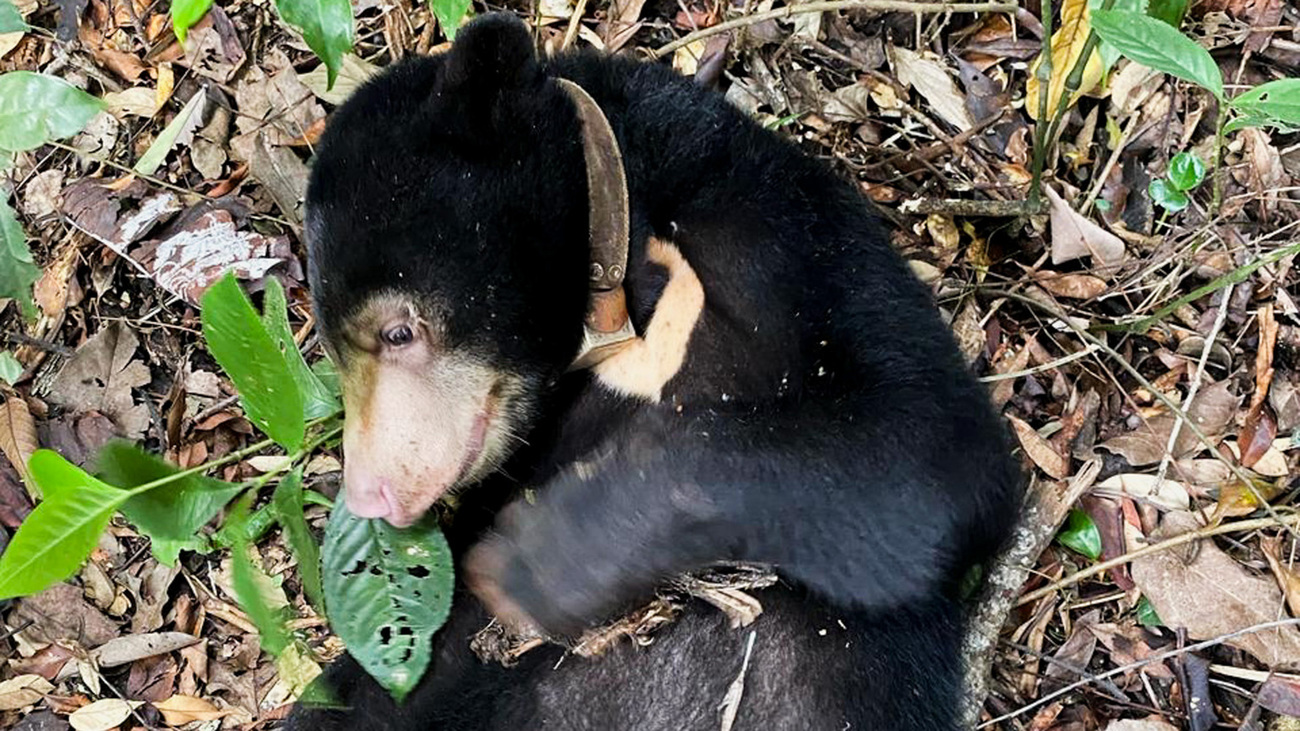Rescued sun bear one step closer to life back in the wild
Rescued sun bear one step closer to life back in the wild
One year ago, Mano was scared, alone, and about to be shipped far from home, into the hands of illegal traders. Now, she’s climbing trees, foraging for insects, and gaining independence as she prepares for life back in the wild.
This sun bear, who is just over one year old, has been in the care of IFAW’s partner Jakarta Animal Aid Network (JAAN) in Indonesia for most of her life.
She was three months old when she was rescued from a car in Jakarta. Acting on a tip, JAAN and the Indonesian police intercepted an illegal trade deal that would have seen poachers ship Mano from Indonesia to Dubai.

Getting acquainted with her natural habitat
Since then, she has been under the watchful eye of her dedicated carers, who take turns looking after her 24/7. When she first arrived, she needed milk every two hours. As she grew, the team at JAAN built a special enclosure for her so she could learn how to climb and find food such as berries, nuts, and termites.
After some time, she graduated to JAAN’s Forest School, where she spends all day exploring the treetops deep in the forest. She’s fitted with a GPS tracker, and her carers still remain close while she walks for nine hours and up to six kilometres every day.
She spends her days folding leaves to make nests in trees and then sleeps in them during the day—sun bears sleep both during the day and at night, depending on when they feel safe. This crucial skill will help her do the same for her night’s sleep, too—when she’s ready. For now, she still returns to the camp and sleeps beside her carers in her enclosure.
She forages for insects, forest fruits, and water—all natural behaviours she would display in the wild. Some of her favourite foods include beetles, termites, ants, ficus, and centipedes.
Mano’s bright future
As she becomes more independent every day, her carers are slowly decreasing the amount of interaction she has with them. This is a key step in her preparation for life in the wild.
‘It has been so beautiful to see the development of Mano,’ says JAAN co-founder Femke den Haas. ‘From being a fragile, scared, traumatised bear cub to gaining back her confidence, finding her own food, climbing high trees, and even making nests now in the forests.

‘Mano has come so far already at Forest School—the first of its kind in Sumatra. We are extremely grateful for the support and collaboration with IFAW, allowing us to give sun bear cub Mano and other rescued animals this opportunity to return to the wild.’
IFAW’s Wildlife Rescue Program Director Neil Greenwood says wildlife crime is a constant threat, and it’s imperative that the welfare and care of impacted animals is prioritised.
‘IFAW's support of JAAN ensures that wildlife is given a second chance and protects species conservation through dedicated rescue, rehabilitation, and ultimately release back into the wild,’ he added.
IFAW has been working with JAAN for more than a decade to disrupt wildlife trafficking networks, train law enforcement teams (including tracking dogs), and ensure animals confiscated from illegal trade receive the best care. In most cases, rehabilitation needs to start immediately, so rescued young animals can learn the vital survival skills they would have gleaned from their mothers in the wild.
The ultimate goal is to reintroduce these animals, like Mano, back into the wild, where they will join wild populations—helping to ensure these species survive and thrive long into the future.
Related content
Every problem has a solution, every solution needs support.
The problems we face are urgent, complicated, and resistant to change. Real solutions demand creativity, hard work, and involvement from people like you.